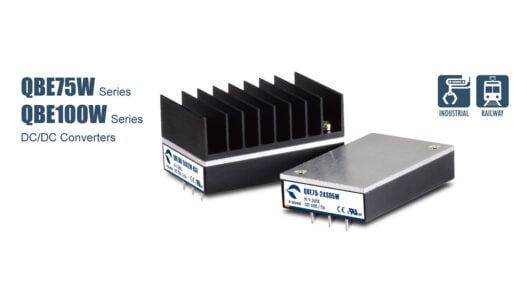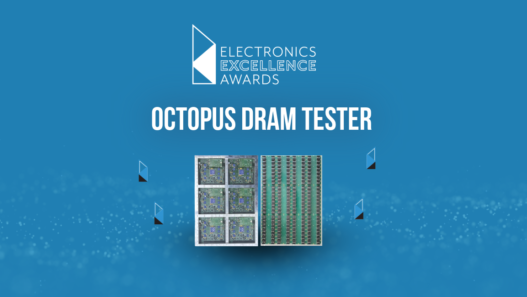NXP’s Cortex-M4 DSC family is implemented using an ultra low-leakage 90-nm process technology. This enables performance in excess of 150MHz, as well as very low active power consumption. In addition, the MCUs will offer extremely low power down currents using techniques proprietary to NXP. Featuring the high-efficiency signal processing functionality of the Cortex-M4, the NXP microcontrollers are designed for a broad range of applications, including sophisticated motor control, digital power control and embedded audio.
Traditional microcontrollers are designed to perform control-oriented applications but are not well suited for sophisticated digital signal processing algorithms. Adding a separate DSP can make the over all system extremely complex and costly. However, with the optimized high-performance DSP extensions on the Cortex-M4, this new class of DSC is designed to solve both control and signal processing easily and seamlessly.
The ARM Cortex-M4 processor has an extensive set of single cycle multiply-accumulate (MAC) instructions; optimized single instruction multiple data (SIMD) instructions; saturated arithmetic instructions; as well as a single precision Floating Point Unit (FPU). Coupled with speeds exceeding 150MHz, NXP’s Cortex-M4-based MCUs are ideal for processing analog data and complex processing algorithms.
“Our newest microcontrollers based on the ARM Cortex-M4 processor will be an important part of NXP’s High Performance Mixed Signal portfolio, providing embedded system designers with an effective way to process data from complex analog peripherals,” said Geoff Lees, vice president and general manager, microcontroller product line, NXP Semiconductors. “The DSP extensions of the Cortex-M4 offer significant advantages, for example, offering 5 to 10 times improvement in complex DSP algorithms.”
The ESC Silicon Valley demo will show that a 7-channel audio graphic equalizer application processing 32-bit precision audio data requires only 12 MHz of CPU bandwidth using the Cortex-M4 DSP extensions, and 60 MIPs without.
“NXP and ARM have brought together technologies that will change the landscape of DSC market significantly,” said Paul Beckmann, CEO of DSP Concept. “We are already porting all of our algorithms to support the NXP DSC platform.”
NXP now offers an entire continuum of microcontrollers that span the Cortex-M0, Cortex-M3 and the Cortex-M4, offering a complete range of performance, power and price points to meet customers’ embedded needs.







